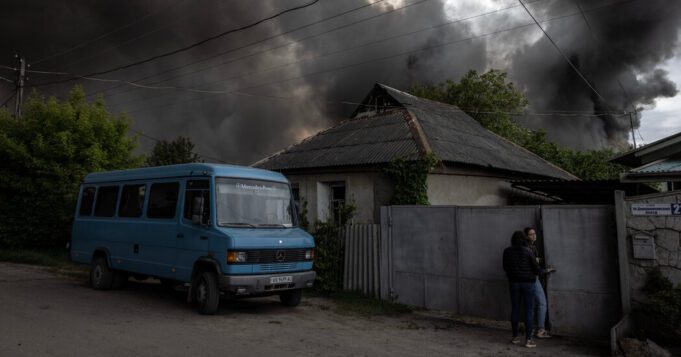Pressure grows to allow use of US weapons in attacks on Russia
Secretary of State Antony Blinken said yesterday that the Biden administration might be willing to tolerate Ukrainian forces striking inside Russia Using American-made weaponsHe said the United States has so far opposed such attacks but would “adjust” its stance depending on battlefield conditions.
Several European leaders, including NATO Secretary-General Jens Stoltenberg and French President Emmanuel Macron, have called on President Biden to lift restrictions on Ukraine.
Blinken spoke in the Moldovan capital of Chisinau, the first stop on a trip aimed at demonstrating U.S. support for countries facing hostile threats from Russia.
In the U.S, A factory still under construction in Texas will soon be producing 30,000 shells a month for the 155mm howitzers that are vital to Kiev's war effort, about double the current U.S. output. Here's what's going on inside.
New Delhi experiences hottest day on record
it is 52.3 degrees CelsiusTemperatures in India's capital hit 43 degrees Celsius (126 degrees Fahrenheit) yesterday as a heat wave has pushed temperatures well above 43 degrees Celsius (110 degrees Fahrenheit) across several states in recent weeks.
The previous record high of about 48 degrees Celsius has been broken repeatedly in recent days. Officials worry that the power grid will be overwhelmed. Hospitals have reported an increase in cases of heat stroke.
“Ninety percent of Indians work in the informal sector, and many of them have to work outdoors,” Somini Sengupta, international climate correspondent for The New York Times, told me. “They can’t keep up the same pace in these terrible temperatures. The Delhi government said today that it will pay construction workers for lost wages when temperatures reach a certain threshold, but it remains unclear how this will be implemented.”
Israel's offensive on Gaza will last a full year, a senior official says
Israel's National Security Advisor Tzachi Hanegbi said yesterday that he expects 'Another seven months of fighting' The situation in Gaza casts doubt on the idea that the war can be ended following the Rafah offensive against Hamas.
Israel has faced growing international pressure since it bombed the Rafah area, which has been a refuge for displaced Palestinians, and set off a fire that killed at least 45 people. The bombs used in the attack were American-made.
The Olympic athletes' restaurant, which opened this summer in Paris, is a 700-foot-long former power plant that can serve 45,000 meals a day and has been called the world's largest restaurant. But it won't serve French fries or foie grasstriving to reshape the global image of French cuisine.
Conversation starters
sports news
Art and Creativity
Miss the past era
The TV series “Extremely Inappropriate!” tells the story of a foul-mouthed, hot-tempered physical education teacher who finds himself transported to the year 2024 while riding a bus in 1986 Japan. He leaves a time when it's okay to hit students with a baseball bat and arrives in a time when managers frantically monitor their employees for harassment.
This unexpectedly popular comedy was produced by 50-something Gen Xers who miss the freewheeling bubble of their youth, and the characters occasionally break out into crazy musical numbers.
Such depictions resonate in Japan, where some complain that “political correctness” is used as a “stick” to restrict speech or water down TV shows or movies. While critics call the show retrograde, some young viewers say it is “not politically correct”. The show made them question the social norms they once took for granted.
That's it for today's briefing. Thank you for taking the time to speak with us this morning, and see you tomorrow. –Justin
You can contact Justin and his team via the following methods: briefing@nytimes.com.









